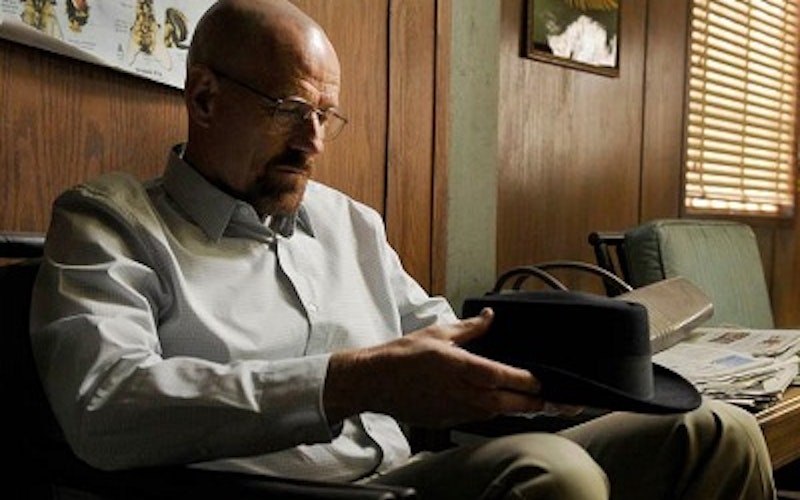
TV
Breaking Bad's uniquely Christian view of evil
What I think we all realized as we went along is that this guy was surprising us. He wasn’t just responding to circumstances, there was something in him…
- Breaking Bad writer/co-executive producer Thomas Schnauz, interviewed in Entertainment Weekly July 26, 2013
In 1981, author Thomas Harris wrote Red Dragon and introduced the world to one of the most famous fictitious villains of all time: Hannibal Lecter. Hannibal was a patron of the arts, a culinary expert with a refined palette, a brilliant psychotherapist … and a cannibalistic serial killer, but only of people he deemed rude.
A decade later Silence of the Lambs - and Anthony Hopkins’ iconic performance - would turn Hannibal into an archetype: the dignified, refined and charming psychopath. The implication of this is that evil, at its core, has substance. If this is true, it subconsciously lets us off the hook for finding evil so intoxicating. Evil is an opportunity to experience something we wouldn’t otherwise. We can - should? - dip our toe in the edges of evil and experience just an inch of Hannibal’s Nietzschean transcendence of the rules.
For five remarkable seasons, Breaking Badhas been dismantling this lie with one of the most Christian understandings of evil I’ve ever seen. In the show’s first episode, mild-mannered protagonist Walter White (Bryan Cranston) is a browbeaten but kindly chemistry teacher at a public school in Albuquerque. He has a pregnant wife and a teenage son with cerebral palsy - and has just found out he has an aggressive form of lung cancer. Realizing his family will have nothing if he dies, Walt uses his chemistry know-how to make a powerful form of crystal methamphetamine.
Breaking Bad reveals that this evil was a part of Walt all along.
This is where the show began. Where it headed is best captured by the way show creator Vince Gilligan first described the lead role to Cranston: as Mr. Chips meets Scarface. As a broad overview this is about right. As the final season of Breaking Bad comes to a close – the final run of episodes begins this Sunday - Walt has gone from a family man to a drug kingpin, directly murdering dozens, indirectly killing hundreds. And what’s remarkable is that Walt’s stumbling moral descent has not had one false moment. It is one of the most psychologically insightful shows I’ve ever seen, which makes the brilliant acting, stunning cinematography and subtle direction that much more powerful.
But Breaking Bad is more than a brilliantly told Godfather-style story of corruption. It has The Godfather’s vicarious thrill of watching the antihero succeed while his soul slowly collapses. Yet Breaking Bad goes morally deeper, revealing that this evil was a part of Walt all along. As Walt’s past is (sparingly, subtly) revealed, it becomes obvious that Walt’s sin isn’t that of a desperate man wanting to provide for his family. It’s pride. Walt has always been deeply arrogant and the moment his sin (a word Gilligan freely uses in interviews) is given free reign, it devours everything around it … like a cancer. We watch as Walt’s choices wreck the lives of his family, his friends, his community, even his city. And Walt’s evil is ugly. Brutal. It destroys goodness and leaves despair in its wake. There’s nothing erudite or dignified about it.
When we last saw him, Walt finally recognized this. He sat at the pinnacle of his meth empire, looked at a literal mound of money he’d made and saw the emptiness of it all. Evil wasn’t interesting, as it turns out, it just masquerades that way. By the time the show finishes its run, there’s good chance we’ll find Walt’s realization has come too late. His bodily cancer may be in remission, but his spiritual cancer is terminal.
Gilligan has been quoted as saying, “I’m not sure if there’s a heaven, but I can’t not believe there’s a hell.” His show’s slow creep of hell has been on full display for five seasons. Whether he’ll be able to find a glimpse of heaven remains to be seen.
Topics: TV, Culture At Large, Arts & Leisure